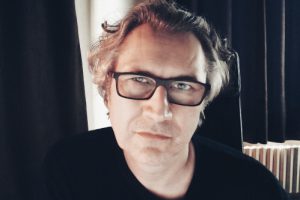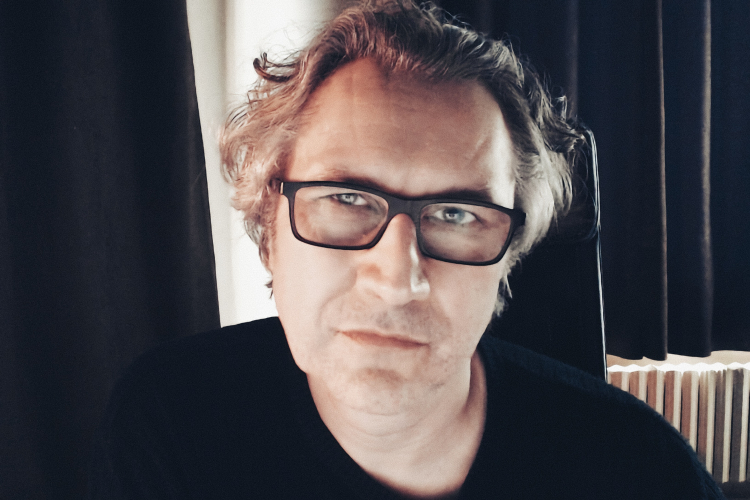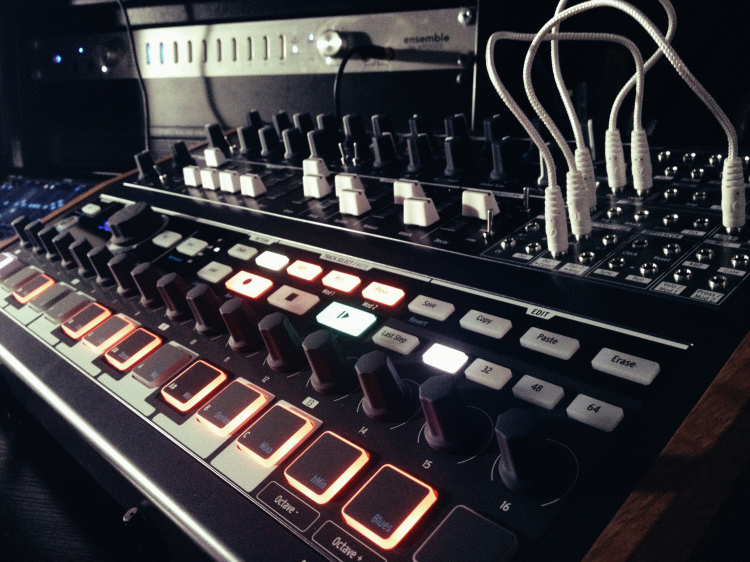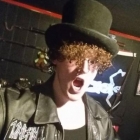
Hello Laurent and welcome to Brutal Resonance! I always enjoy starting with this question: What are three of your favorite albums of all time and why?
Laurent Colson: Hello and thank you. My choices of albums will perhaps seem surprising because they are quite far from my own sound universe. The first album that touched me was "Ainsi soi je" by Mylene Farmer. This album especially appealed to me for its lyrics, dark, melancholy, and its infinite sadness. The first track of this album is a poem by Charles Baudelaire, "L'horloge", referring to the time that inevitably sucks us in, time being a theme that I particularly like. Second, I will talk about the album "MCMXC a.D." of Enigma for its mystical side, an album built without any pause between tracks, taking us on an emotional journey. Here, few texts, but a harmony and an inspiring musical atmosphere to an inner adventure. Note the originality of the video which follows the same construction as the album by covering all the tracks without interruption, which makes it a long clip of 40 minutes. Finally, the album "Birds Of Passage" by Bel Canto, mixing electronic sounds, triturated acoustic instruments, sumptuous texts, and the magical voice of Anneli Drecker. The song "Picnic On The Moon" is the one I listened to the most on this album, both poetic and sad, narrating the life of a dreamy being lost in deep solitude.
Tell me the origin of your music project. What got you started?

While you currently dabble in witch-house / chill music, I can’t imagine that’s where you started. What was your initial idea for the project and how have you evolved?
You were a video game developer from 1992 to 2000. What games did you work on and how, if anything, did it influence your career?
You also develop music apps for iOS and macOS. Which ones, and how do you use your personal experience developing music to help with these apps?
You did a couple of remixes in the 2000s. It was also around this time you met Anneli Drecker of Bel Canto. What were these remixes and why did you want to meet Drecker so bad?
In your music you use artificially created voices instead of vocals. I am not a fan of this approach, others are. It’s polarizing, to say the very least. Why do you choose this method?

You also state that you like to let the listener experience their own emotional story through your music, instead of your own. If someone were to argue that your story is still in there, considering you made the music, how would you respond to that?
You don’t use hardware, and very little software and plug-ins. Do you find this limiting in your artistic vision?
What comes next? Do you have any other albums, remixes, EPs, singles, etc. on the way?
Lastly, I’d like to thank you for your time. I leave the space below for you to mention anything I may have missed. Cheers!

Steven Gullotta
info@brutalresonance.comI've been writing for Brutal Resonance since November of 2012 and now serve as the editor-in-chief. I love the dark electronic underground and usually have too much to listen to at once but I love it. I am also an editor at Aggressive Deprivation, a digital/physical magazine since March of 2016. I support the scene as much as I can from my humble laptop.
Share this interview
Facebook
Twitter
Google+
Shares
Popular interviews
Psyclon Nine
Interview, Mar 24 2017
Night Runner
Interview, Oct 13 2016
Testube
Interview, Apr 02 2022
Kite
Interview, Feb 10 2017
God Destruction
Interview, May 17 2016
Related articles
Laurent Colson - 'Split Soul'
Review, Jul 08 2022
Laurent Colson - 'Dark Celebration'
Review, Jun 13 2021
Distorted Memory - 'Swallowing The Sun'
Review, Apr 04 2011
CROW CVLT - 'INFERNO'
Review, Feb 25 2024
∆aimon - '∆AIMON'
Review, Apr 16 2014



